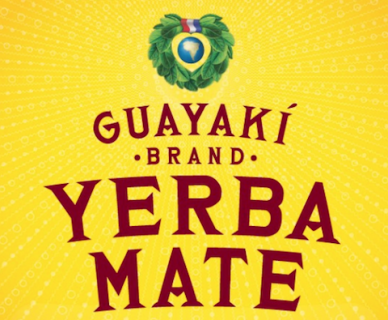
A few young folks from Sebastopol, Calif. went to college for a year in Argentina. As most do in a South American country of this ilk, they discovered yerba maté — an energizing beverage that embodies the country as much as the sun above. When they returned to Sebastopol, they brought with them a group of six or seven Argentines. The visitors naturally couldn’t go a day without yerba maté; they had their ziplock bags and they had their tupperware. Then, one of the locals said: you know, there’s a yerba maté cafe in this town. The Argentines refused to believe it, standing akimbo, citing the standard American ignorance and stupidity and the rest of the not-entirely-wrong-clichés. Then they visited the yerba maté cafe at the nearby Guayaki headquarters.
“When they got there,” said David Turconi, general manager of the cafe, “they were hugging the walls.”
To meet this passion and the growing demand for yerba maté, Turconi intends to take the concept out of the Guayaki headquarters and into a new set of locations. In March 2015, he plans to launch the first of many yerba maté hubs, titled “Copas Café.” Copas is Portuguese for “cup.”
He plans on launching the first cafe in San Francisco, with locations in Palo Alto and Berkeley soon to follow. Guayaki, the main wholesaler of RTD yerba maté in the U.S., will supply the South American-sourced yerba maté and will be featured in the store, online and in the business plan. Otherwise, this is an independent venture for Turconi. Guayaki has enough on its plate, he said.
Yet, even with their amazement at the existence of such a place in the U.S., it’s not just shocked Argentine visitors who support a cafe where yerba maté functions as the epicenter of commerce. Turconi said he serves customers at the Guayaki headquarters from Mississippi, Kansas, Virginia and Pennsylvania. He has relatives in Tennessee who are crazy about yerba maté, leaving this small town in wine country with bags of the stuff.
The export figures seem to fortify Turconi’s claim of proliferation. A July 2013 report by Argentina’s Administration of Agriculture, Livestock and Fishing states that the value of yerba maté exports have increased from $18.6 million in 2003 to $67.9 million in 2012.
Turconi has been drinking yerba maté for several years and believes in the Guayaki maxim: the strength of coffee, the health benefits of tea and the euphoria of chocolate. However, his connection to the beverage exists on a more collective level. This explains Turconi’s vision of the future cafes. He projects an atmosphere where cyclists and artists alike can hang out, where speakers have a voice in the corner of the shop and where small businesses can build from the seed of an idea.

“They don’t have a storefront,” he said of the pastry maker. “Well, I’m their storefront.”
Turconi said that consumers will get behind more than just the yerba maté itself, but also its broader goal. The greater the demand for the beverage, the greater the demand for a healthy rainforest that can keep producing the leaves necessary for yerba maté. This creates jobs and can boost local economies.
After the first three Copas Café locations in the Bay Area, Turconi has national ambitions for the concept.
“There are small community pockets all over the U.S. where there’s a high concentration of yerba maté consumption along with local organic foods,” he said.
But until next March, he’ll be working at the cafe of the Guayaki headquarters, mulling his plans, content to serve the next shocked Argentine.